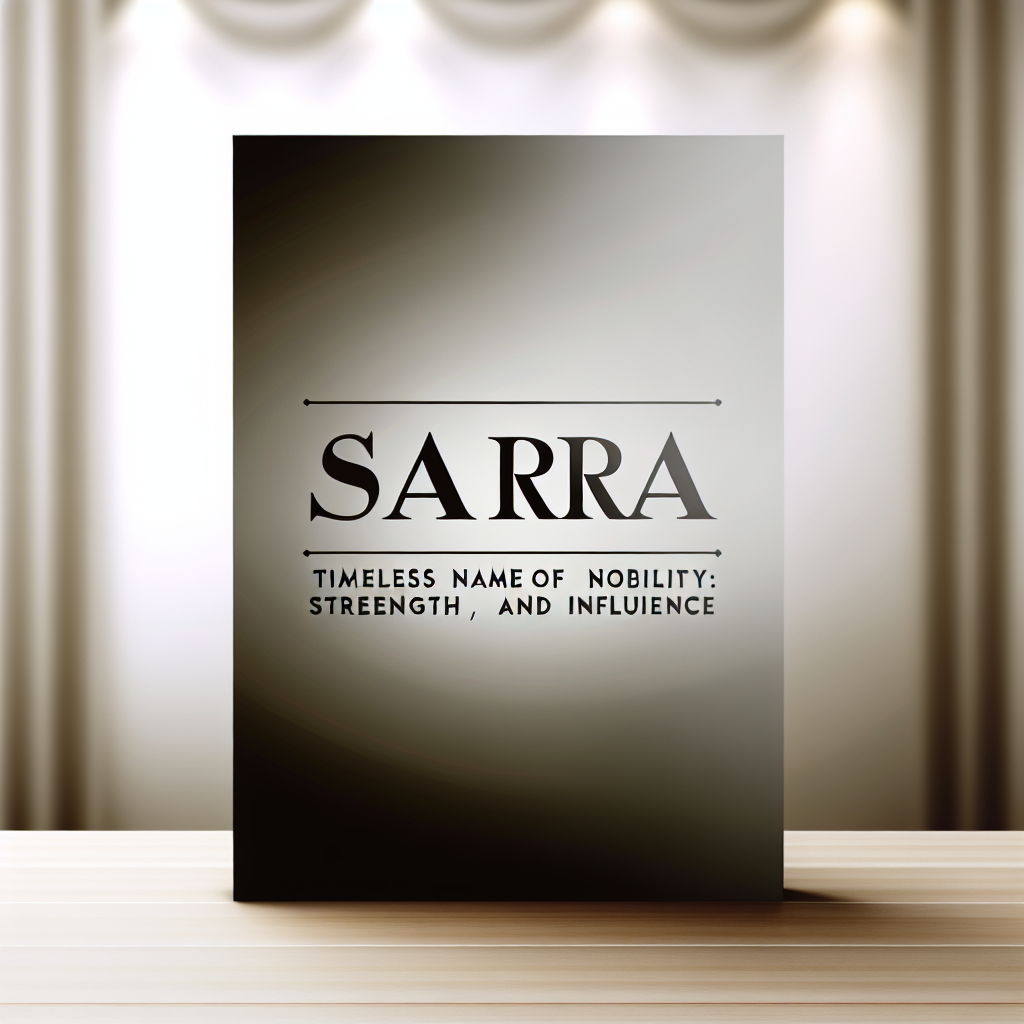
In the world of names, Sara stands out as a timeless classic with deep historical and cultural roots. Derived from Hebrew origins, Sara means “princess” and is famously associated with the biblical figure Sarah, wife of Abraham. This article delves into the etymology, significance, and notable individuals bearing this name, exploring how it has evolved across cultures and continues to inspire parents worldwide. From its ancient beginnings to modern-day icons, we’ll uncover the enduring appeal of Sara.
Origins and Meaning of the Name Sara
The name Sara traces its roots back to the Hebrew Bible, where it appears as Sarah, meaning “princess” or “noblewoman.” In the Book of Genesis, Sarah is depicted as a matriarch whose story symbolizes faith, resilience, and divine promise. Over centuries, the name evolved through various languages and cultures. In Arabic, it’s spelled “Sarah” and holds similar connotations of nobility. Linguistically, it’s linked to the Semitic root “sar,” denoting leadership. This etymology has made Sara a popular choice in Jewish, Christian, and Muslim traditions, often symbolizing grace and strength. Interestingly, variations like Sarah, Sarai, or Zara reflect regional adaptations, yet the core meaning persists, influencing naming trends globally. Parents often select Sara for its elegant simplicity and empowering undertones, associating it with qualities like intelligence and poise.
Notable Figures Named Sara
Building on its rich heritage, the name Sara has been borne by influential women across diverse fields, embodying the “princess” essence through their achievements. For instance, Sara Bareilles, the American singer-songwriter, has captivated audiences with hits like “Love Song,” earning Grammy nominations and Broadway acclaim for her musical Waitress. In science, Sara Seager, an astrophysicist, pioneers exoplanet research, contributing to our understanding of potential life beyond Earth. Literature boasts Sara Ahmed, a feminist scholar whose works on queer theory and affect challenge societal norms. These women not only excel in their domains but also inspire others, linking back to the name’s origins of leadership. From activists like Sara Duterte, Philippine politician, to athletes like Sara McMann, Olympic wrestler, the name Sara represents a legacy of trailblazers who redefine boundaries.
Sara in Popular Culture and Modern Trends
Transitioning from historical and personal significance, Sara permeates popular culture, reinforcing its timeless allure. In literature and film, characters like Sara Crewe from Frances Hodgson Burnett’s A Little Princess exemplify resilience amid adversity, mirroring the name’s biblical roots. Television features strong Saras, such as Sara Lance in Arrow, a superheroine embodying empowerment. Modern trends show Sara ranking consistently in top baby name lists, with celebrities like Sara Ramirez (from Grey’s Anatomy) adding to its visibility. Social media influencers and bloggers named Sara further popularize it, sharing stories that resonate with themes of identity and heritage. This cultural integration ensures Sara remains relevant, blending tradition with contemporary expressions of femininity and strength.
In summary, Sara is more than a name; it’s a symbol of nobility, resilience, and influence, rooted in biblical history and flourishing through notable figures and cultural representations. From its meaningful origins to inspiring modern icons, Sara continues to captivate. Whether choosing it for a child or appreciating its legacy, readers are encouraged to explore how such names shape identities and connect us across generations, fostering a sense of timeless empowerment.